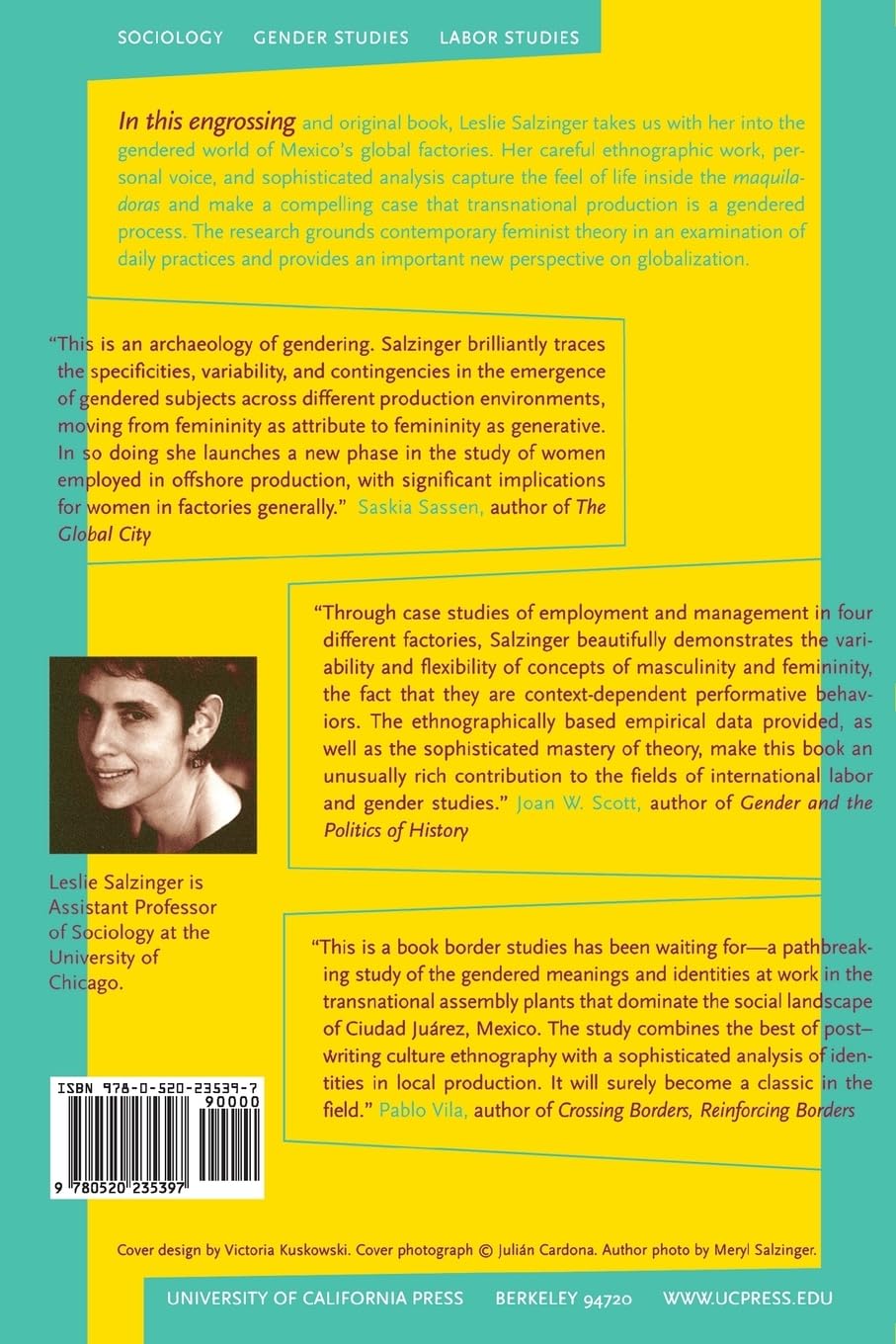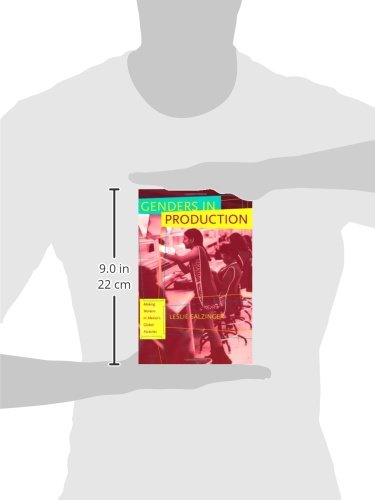



Genders in Production: Making Workers in Mexico's Global Factories
M**N
The exploitation of gender for profit
"Genders in Production" by Leslie Salzinger is a groundbreaking study about production processes in Mexico's maquiladoras. This fascinating book should appeal to academics, feminists, labor activists and others who may be interested in learning about the dynamic processes by which globalization exploits gender for profit. Importantly, Ms. Salzinger's keen insight and analysis helps open the door to imagining a world where gender stereotypes could be transcended and labor rights accorded more respect.Ms. Salzinger's meticulous ethnographic work at four maquila factories helps her obtain an insider's view of how sexual identities struggle for recognition and reward on the shop floor. The author discusses how the "trope of feminity" deludes investors into locating factories in places where it is believed that female laborers will passively accept routinized work for low wages. However, as the facts on the ground depart from this fantasy, the struggle between capital and labor is observed to be gendered but nonetheless highly variable and contextual.Ms. Salzinger dedicates one chapter apiece to her experiences at four manufacturing plants in northern Mexico. She cleverly assigns pseudonyms to describe the salient characteristics of each plant. For example, "Andromex" is a factory where male and female workers become almost androgenous through the development of similar work habits; "Anarchomex" is noteworthy for its embattled masculine workers conflicting both amongst themselves and with female co-workers to create nearly anarchic conditions of production; and so on. The writing in these chapters is vivid, engaging and intelligent, imparting glimpses into both the worker's daily struggle for survival and the logic of the managerial systems that controls and exploits these workers.I found it interesting (if not disheartening) to learn that capital's strategy of dividing the working class by gender has proven to be remarkably effective. By redefining production as primarily women's work, employers can pay below-subsistance wages and offer scant benefits, job enrichment or advancement opportunities. As made clear through Ms. Salzinger's field research, these diminished career expectations deprive the working class of Mexico with the hope of achieving a better life and are frequently used as a threat to drive down wages in the U.S. and other industrialized nations.In the final chapter, Ms. Salzinger draws on feminist writings to connect the trope of feminity with cultural norms that tend to devalue women through their association with domesticity. By discovering that gendered meanings in the workplace can be flexible, however, the author suggests that subjectivity may be contestable. If structures of power are a "concatenation of common-sense understandings" about women's perceived role in the home, she argues, then the reality of changed meanings forged in the crucible of workplace production may point the way in time to new, empowered definitions.I highly recommend this book to demanding readers who may be interested in an original and thought-provoking thesis about gender and globalization.
Trustpilot
1 month ago
2 weeks ago